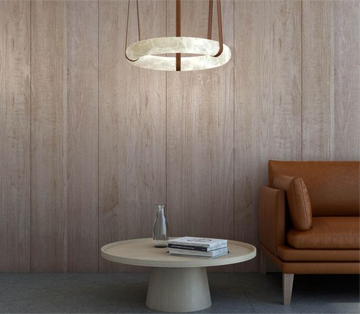The French (FR) Supreme Court has just clearly recalled that also in patent matters, the FR judge may assess infringements committed outside France (FR), [double cassation of June 29. 2022, appeal G 21-11.085, judgment 540 F-D: Hutchinson (FR) / Global Wheel (ZA), Tyron (GB), Dal (FR) and LaVi (FR)].
This court case is as follows:
- The FR plaintiff is the owner of an European patent (EP) designating FR, Great Britain (GB) and Germany (DE).
- This patentee is accusing four defendants :
-
- the South African (ZA) manufacturer, for supplying onto England (EN) and FR,
- the EN importer, for exhibiting in FR, offering on his EN website and reselling from his country in particular towards FR and DE,
- the two FR defendants, for offering from this EN website the incriminated items in particular towards FR.
- In 2018, this patentee asked the Paris courts to assess these infringements in FR as well as in GB and DE, of course according to the national law of each of these three countries.
The validity of the involved EP is not challenged by anyone.
- The two FR defendants in their own regard admit this international jurisdiction of the FR court, particularly in view of the 1995 Fiona Shevill decision (CJEU).
However, at the request of the ZA and EN defendants, the Parisian judges twice declared having no jurisdiction to deal with the infringements of which these two foreign defendants were also accused in GB and DE.
The double cassation is pronounced for violation:
- and of art.8 (1) of Regulation (EU) 1215/2012 dated December 22. 2012, when there is a certain plurality of defendants [§6],
- and of art.14 of our Civil Code, because of the FR nationality of the plaintiff [§10].
The plurality of defendants
The Parisian judges had in fact considered (imitating the former Roche/Primus CJEU decision of 2006) that, given his EN law on infringement, it was not irreconcilable that the EN judge could assess that there was no infringement on his territory, whereas the FR judge, applying his FR law, could assess that there was indeed infringement in his country, while in addition the involved products would not have been identical in GB and in FR.
But this was forgetting (which the CJEU had already held in its more recent Solvay/Honeywell decision of 2012) the following points:
- The FR court must also rule on the infringements in GB which are alleged against the two FR defendants.
And this will be under the same EN law for infringement of the same EN part of the EP. Under these circumstances, it would be “surprising” if not “irreconcilable”, to say the least, if his decision differed from that of the EN judge in respect of the infringements committed on the same EN market by the two other defendants, the ZA supplier and the EN importer.
- Moreover, the acts of which the FR are accused in EN are one of the two sides of the same coin as those of their EN supplier and ZA importer onto the same EN market.
It is indeed the same source and the same marketing channel through several EU countries.
Just like the manufacturer in Marseille, the Parisian wholesaler and the Breton reseller of the alleged infringements are legitimately summoned only before the Parisian judge.
- Finally, on this EN market, it is indeed every version of the same product that the patentee is accusing of infringements before this FR judge.
The French nationality of the plaintiff
- This art. 14 of our Civil Code has provided for several centuries that “A foreigner, even one not residing in France, may be […] sued before the courts of France, for obligations contracted by him in a foreign country towards French persons.“.
Conversely, its art. 15 provides that “A Frenchman may be sued before a French court, for obligations contracted by him in a foreign country, even with a foreigner. ».
This privilege exclusively in favour of a FR litigant only applies if no other national, regional or international text benefits the foreigner.
In that case, this privilege is of general scope, and it applies :
-
- to litigation even of a tortious nature,
- for the sole reason that the plaintiff is of FR nationality.
This is the case when the ZA manufacturer delivered onto GB; he can therefore be sued by the FR patentee before this Paris Court.
Since Brexit and until further notice, this will also be the case for the GB who trade from their country.
In practice, many FR plaintiffs disregard this privilege, which is neither compulsory nor of FR international public policy.
Could it be to avoid having to multiply the evidence of several infringements under each of the local laws on infringement ?
However, in Europe in particular, many national laws have been put in line with the Marrakesh Agreement of April 15. 1994 (art. 28 et seq. about the exercise of patent rights).
- Following this traditional logic of FR private international law, could the FR patentee before a FR judge summon the American (US) manufacturer or the Chinese (CN) trader who would infringe in his country the title of this FR plaintiff, still according to US or CN law ?
This may seem :
-
- exorbitant, for example for legal persons who more often than natural persons have the means to spread their legal claims over each of our continents…
- risky to see the reciprocal being inflicted on the FR in these countries …
- But how close are we in this world to a privilege when faced with powerful people who wish to protect the interests of their own nationals abroad ?
Should we then demand that this foreigner also infringe in FR ?
Specialists in this field of private international law answer in the negative.
Indeed, at least from the point of view of civil liability, our intellectual property disputes are no different from other tort disputes.
Remarks
At the beginning of the 20th century, the FR judge had already declared himself competent to assess, if not the validity, at least the almost non-existent scope of a Greek trademark or of a Spanish import patent, in particular to reject in these two countries the infringements submitted to him by their FR owner.
If Art. 24 (4) of the same EU Regulation 1215/2012 now prohibits our judges from ruling on the validity of a title in the EU that has not been granted by its State, the FR infringement judge could well react like the DE judge with his bifurcation system, and for example stay the ruling on the foreign infringement if the validity of the foreign title appears to him to be seriously doubtful.
Conclusion
It is fortunate that this international competence of our judges, which has long been recognised for copyright, design and trademark infringements, or even for unfair competition, is now recognised by our Supreme Court in patent matters. Not to mention their SPC !





